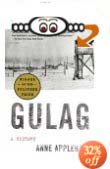| Jewish World Review April 7, 2009 / 13 Nisan 5769 No Nukes? No Thanks: Obama's
odd obsession with universal
nuclear disarmament By Anne Applebaum http://www.JewishWorldReview.com | Believe me, it is no fun to be the one who rains on the parade, and if nothing else, President Barack Obama's trip to Europe this past week was quite a parade. Or maybe "sold-out concert tour" is the better metaphor. There was a jolly town-hall meeting in Strasbourg, France; a wonderful encounter between Michelle Obama and Carla Bruni; spectacular street scenes in Prague. The world's statesmen fell all over themselves to be photographed with the American president. (Click here to watch Italian Prime Minister Silvio Bersluconi howling for the president's attention during a photo session—to the immense annoyance of the queen.)
Still, someone has to say it: Some things went well on this trip, and some things went badly. But the centerpiece of the visit, Obama's keynote foreign-policy speech in Prague—leaked in advance, billed as a major statement—was, to put it bluntly, peculiar. He used it to call for "a world without nuclear weapons" and a new series of arms-control negotiations with Russia. This was not wrong, necessarily, and not evil. But it was strange.
Clearly, the "no nukes" policy is one close to the president's heart. The Prague speech even carried echoes of that most famous of all Obama speeches, the one he made after losing the New Hampshire primary. "There are those who hear talk of a world without nuclear weapons and doubt whether it is worth setting a goal that seems impossible," he told his Czech audience. (Remember "We have been told we cannot do this by a chorus of cynics"?) "When nations and peoples allow themselves to be defined by their differences, the gulf between them widens," he continued. ("We are not as divided as our politics suggests.") He didn't say "Yes, we can" at the end, but he did say "human destiny will be what we make of it," which amounts to the same thing.
The rhetoric was his—as was the idea. Look at his record: One of the few foreign-policy initiatives to which Obama stuck his name during his brief Senate term was an increase in funding for nuclear nonproliferation. One of the few senatorial trips he managed was a nuclear inspection tour of Russia, Ukraine, and Azerbaijan.
This is all very nice—but as the central plank in an American president's foreign policy, a call for universal nuclear disarmament seems rather beside the point. Apparently, the president's intention is to lead by example: If the United States cuts its own nuclear arsenal and bans testing, others will allegedly follow.
Forgive me for joining the chorus of cynics, but there is no evidence that U.S. nuclear arms reductions have ever inspired others to do the same. All the world's more recent nuclear powers—Israel, India, Pakistan—acquired their weapons well after such talks began more than 40 years ago.
As for the North Koreans, they chose the very day of the Prague speech to launch (unsuccessfully) an experimental missile. In its wake, neither China nor Russia wanted to condemn the launch, since to do so might set a precedent uncomfortable for them. "Every state has the right to the peaceful use of outer space," said a Russian U.N. envoy. His government does want arms-reduction talks, it is true, but only because the Russian nuclear arsenal is rapidly deteriorating. By agreeing to start them, we've unnecessarily handed over a bargaining chip.
More to the point, nuclear weapons, while terrifying in the abstract, are not an immediate strategic threat to Europe or the United States—even from Iran. Biological weapons are potentially more lethal. Chemical weapons are far cheaper to produce. Within the United States, ordinary bombs and rogue airplanes have already caused plenty of damage.
Conventional weapons, meanwhile, have not gone out of fashion. The most recent use of military force in Europe—the Russian-Georgian conflict of last August—involved tanks and infantry, not nukes. Even if Russia sold its remaining nuclear weapons for scrap metal, Russia's military would still pose a potential threat to its neighbors, just as a China without nukes could still invade Taiwan.
Ridding the world of nuclear weapons would be very nice, in other words, but on its own, it won't alter the international balance of power, stop al-Qaida, or prevent large authoritarian states from invading their smaller neighbors. However unsuccessful it has been so far, the promotion of democracy around the world is, ultimately, the only way to achieve these goals. Besides, however much the French loved Michelle's flowery dress, I'm not sure they have much interest in giving up their force de frappe. Ditto the British. And since they don't pose a threat, to us or anyone else, it's not clear to me why we should waste diplomatic capital trying to make them do so.
It could be, of course, that the Prague speech represented a holding pattern: Obama will talk about "no nukes" until he finds a more satisfying idea on which to hang his foreign policy. And if it didn't, all that goodwill, so much in evidence last week, might well go to waste.
Every weekday JewishWorldReview.com publishes what many in the media and Washington consider "must-reading". Sign up for the daily JWR update. It's free. Just click here.  APPLEBAUM'S LATEST APPLEBAUM'S LATEST
Gulag: A History
Nearly 30 million prisoners passed through the Soviet Union's labor camps in their more than 60 years of operation. This remarkable volume, the first fully documented history of the gulag, describes how, largely under Stalin's watch, a regulated, centralized system of prison labor-unprecedented in scope-gradually arose out of the chaos of the Russian Revolution. Fueled by waves of capricious arrests, this prison labor came to underpin the Soviet economy. JWR's Applebaum, a former Warsaw correspondent for the Economist and a regular contributor to the Wall Street Journal and the Washington Post, draws on newly accessible Soviet archives as well as scores of camp memoirs and interviews with survivors to trace the gulag's origins and expansion Sales help fund JWR. | Comment on JWR contributor Anne Applebaum's column by clicking here.
Previously:
03/31/09: What's Loud, Unnecessary, and Costs $75 Million?
03/23/09: Ctrl-Alt-Diplomacy
03/03/09: European Disunion
02/24/09: Who cares what Hillary Clinton says to China's leaders about human rights?
02/17/09: Witless protection
02/10/09: Our Ticket Out of Afghanistan
01/27/09:Why some foreigners can't believe Obama won the presidency fair and square
01/20/09: A Flight Test for All of Us
01/14/09: Europe's New Cold War
01/07/09: Pointless Peace Proposals
12/30/08: The magnificent rhetorical legacy of the Founding Fathers
12/23/08: Do riots in Athens portend demonstrations in Paris and Cincinnati?
12/16/08: Breach of Trust: Bernard Madoff's massive fraud will cripple American capitalism
12/09/08: In praise of charismatic politicians
12/03/08: Moscow's Empire of Dust
11/20/08: Getting Past Mythmaking In Georgia
11/12/08: In Praise of Political Rock Stars
10/03/08: Election Day myths you must resist
09/30/08: Not just a metaphor: Lehman Brothers was economic's 9/11
09/04/08: Class of '64
08/28/08: Did Hillary really help the Barack cause?
08/27/08: ‘Show of Power,’ Indeed
08/19/08: What Is Russia Afraid Of?
08/13/08: When China Starved
08/11/08: Two of the world's rising powers are strutting their stuff
08/05/08: How Alexander Solzhenitsyn's The Gulag Archipelago changed the world
07/29/08:‘The Hour of Europe’ Tolls Again � But are European politicians up to the task?
07/15/08: Why Does Obama Want To Campaign in Berlin?
07/01/08: Citizen Athletes: How did a guy who can't speak Polish end up scoring Poland's only goal of Euro 2008?
06/24/08: Why do we expect presidential candidates to be kind?
06/17/08: Pity the Poor Eurocrats
06/12/08: Is the World Ready for a Black American President?
05/28/08: The Busiest Generation: America seems to value its children's status and achievements over their happiness
05/20/08: Leave Hitler Out of It: The craze for injecting the Nazis into political debate must end
05/13/08: A Drastic Remedy: The case for intervention in Burma
05/07/08: A Warning Shot From Moscow?
04/23/08: Radio to stay tuned to
04/17/08: China learns the price of a few weeks of global attention
04/01/08: Head scarves are potent political symbols
03/26/08: The Olympics are the perfect place for a protest
03/19/08: Could Tibet bring down modern China?
03/12/08: Have political autobiographies made us more susceptible to fake memoirs?
03/05/08: Why does Russia bother to hold elections?
02/20/08: Kosovo is a textbook example of the law of unintended consequences
02/06/08: A Craven Canterbury Tale
02/06/08: French prez' whirlwind romance reminds voters of his political recklessness |



No comments:
Post a Comment